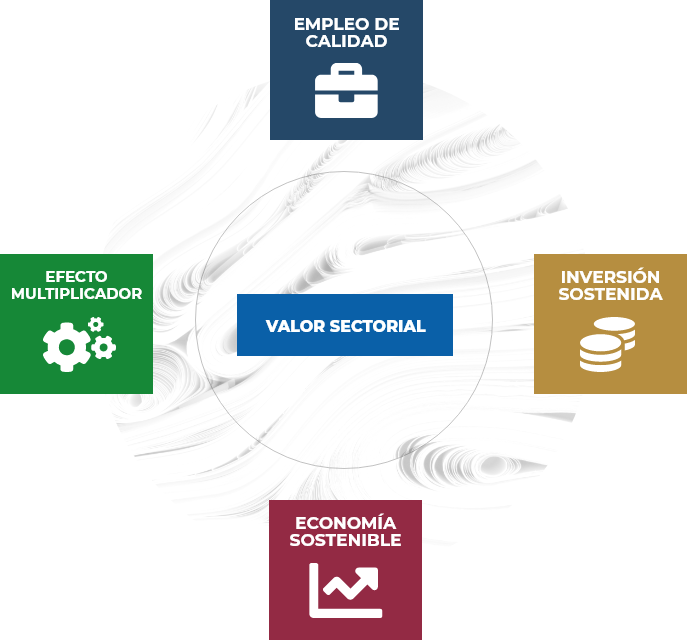QUALITY EMPLOYMENT
The percentage of full-time employment in the industry is very high, and it is of high quality, stable and qualified. This last virtue is supplemented by specific ongoing training to maintain the level of qualification and employability of the people working in the industry.
On the other hand, the level of compensation in the industry is above the average in the industry, both in the Basque Autonomous Community and in Spain. And, in any case, above the general average compensation for all activity segments.
SUSTAINED INVESTMENT
It is a heavily capital-intensive, investment-intensive industry. This is the only way to ensure its future competitiveness. Investments in environmental sustainability, energy efficiency, processes, digitalisation, Industry 4.0… are the cornerstones of its future.
Such investment, moreover, is sustained over time despite the economic circumstances (financial crisis 2008, health crisis 2020). It even becomes counter-cyclical in order to be prepared for post-crisis rebounds.
SUSTAINABLE ECONOMY
Many had predicted the end of paper, but were wrong. It is true that the industry has undergone a major period of restructuring, and although this has left an image of industrial decline in society, this is completely ill-founded. Industry renewal has been, is and will be permanent.
Thus, faced with the fall in demand for graphic papers, the industry has reoriented itself towards packaging, special papers, paper as a substitute for plastic, … A wide range of opportunities that the industry is taking advantage of to continue creating wealth, its competitiveness being reflected in the high levels of exports (above 50% on average) recorded year after year.
LEVERAGING EFFECT
Due to the nature of the industry, its driving effect is very important. The investments, the large, technologically advanced production equipment as well as the maintenance needs of this equipment mean that direct employment in paper mills is multiplied by the need for suppliers of all kinds.
Industry value
